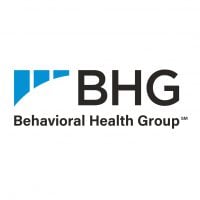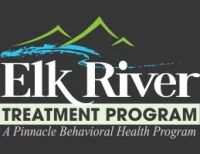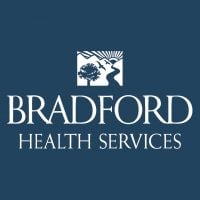Quest Adolescent Intensive Outpatient Program
Drug Rehab Center in Decatur, Alabama
- Substance Abuse
- Opioid Addiction
- Drug Addiction
- Alcoholism
The Quest Adolescent Intensive Outpatient Program in Decatur, AL provides evidence-based therapies, personalized treatment plans, individual and group counseling, case management, drug education, relapse prevention, and 24-hour monitoring and support to help individuals and their loved ones recover from substance abuse and addiction.
Multiple patients have reported Quest Adolescent Intensive Outpatient Program as permanently closed.
Research other rehabs in Decatur, Alabama, or get help finding an open facility.
Our experts will find you an alternative facility.
(888) 674-0062 24/7 Free, Confidential, Expert HotlineAbout Quest Adolescent Intensive Outpatient Program in Alabama
Quest Adolescent Intensive Outpatient Program in Decatur, Alabama is a drug treatment facility that focuses on aiding individuals seeking recovery from alcoholism, opioid addiction, substance abuse, and drug addiction. With a strong dedication to providing comprehensive care, they offer a range of treatment options to meet the needs of each individual. Quest provides Aftercare Support, Drug Rehab, Intensive Outpatient, and Outpatient Levels of Care.
Quest Adolescent Intensive Outpatient Program offers a variety of services and treatment methods to support individuals in their journey towards sobriety. The facility provides a safe and nurturing environment for adolescents, with a team of experienced professionals who are trained to address the specific challenges that young individuals face during recovery. They employ evidence-based practices and therapeutic techniques, including individual and group counseling, addiction education, relapse prevention strategies, and family therapy. By utilizing a multi-faceted approach, Quest aims to provide comprehensive support to individuals struggling with addiction and help them build a strong foundation for long-term recovery.
Genders
Ages
Modality
Additional
Conditions and Issues Treated
It’s not easy getting sober on one’s own, or even going to rehab and escaping the grasp of addiction by oneself. Substance abuse treatment gives addicts a place to stay sober while learning what it takes to quit for good. They will learn from others about what works and what doesn’t work with remaining drug-free.
Treatment centers such as Quest Adolescent Intensive Outpatient Program focus on the needs of individual addicts to heal them. There is a combination of physical and mental therapies that treat the root cause of the addiction, whether it be family problems, stress, or past traumatic events.
The final benefit of substance abuse treatment is introducing new people who can help in your recovery after you leave Quest Adolescent Intensive Outpatient Program. Through group therapy sessions with other addicts and attending support meetings once a day, a person will learn how to interact with others and cope with cravings. This is a chance for you to rebuild your social circle healthily after you leave treatment.
Opioid addiction starts when a person becomes addicted to legal or illegal opioids. The addiction can happen quickly, in just a matter of days. Opioid withdrawal can be extremely uncomfortable and lead the user to continue to use even if they want to quit. Stopping using an opioid requires medical observation. Sometimes inpatient treatment with a medically supervised detox is necessary for managing the withdrawal process while learning lasting tools for maintaining recovery. Medications may be used in some cases of opioid addiction.
Opioid addiction is one of Alabama‘s most prominent forms of addiction. It’s treated by detoxifying the body so that the chemicals from the medications no longer impact them and by therapies to correct behavior and target the root of the problem.
Levels of Care Offered
This center offers a variety of custom treatment tailored to individual recovery. Currently available are Aftercare Support, Drug Rehab, Intensive Outpatient, Outpatient, with additional therapies available as listed below.
Addicts who need help with their addiction can enroll in an intensive outpatient program (IOP). But the patient won’t live there during treatment.
IOP involves patients visiting a medical office building regularly for therapy and other services while continuing to live their lives.
IOP is a step up from drug or alcohol detox, but it’s still a phase of recovery, not the end goal. Patients in need of IOP have many options for rehab and treatment.
Outpatient treatment is considered the lower intensity level of addiction treatment. It’s ideal for early phase addiction or lower intensity addictions. It may include weekly sessions instead of daily. It may include weekly sessions instead of daily. Peer group support, 12-step programs, and individual counseling may still be involved but at a lesser frequency than an intensive outpatient program. It is a good choice for someone who doesn’t need to go through a medically supervised detox and who has a supportive home environment. It requires motivation and dedication to commit to the program without constant monitoring.
Aftercare support should take place after outpatient treatment has ended. There are a few different types of aftercare support that patients can seek. These include 12 Step, Self-help groups (AA, NA), Therapeutic communities, Long-term, structured sober living arrangements, and Halfway houses (residential treatment centers).
Therapies & Programs
Individual therapy involves one-on-one sessions between the patient and therapist. It provides patients with a safe environment to openly discuss personal and sensitive issues with the therapist. They find the therapist as someone they can trust. Individual therapy aims to identify the core issues that would have led the patient to substance abuse and address them effectively. The therapist can develop patient-specific customized solutions through individual therapy, which aids speedier recovery.
Family therapy is a group problem-solving that aims to improve communication and relationships between the addict, their family, and sometimes friends. The main goal of family therapy for drug addiction is to create an environment where communication can occur without judgment, hostility, or blame. The therapist is with the family as they learn to communicate differently, especially with the addict when s/he is using. The family can learn to reduce their enabling behavior or rally together and support each other during tough times.
An addict’s family can play a vital part in helping them to avoid relapse because they can spot the warning signs and help them get back on track before it becomes too much of a problem. Family therapy is one of the most effective ways to help addicts stay on the path to long-term sobriety. When a drug addict decides that they want to try and get sober, it takes the support of every person they love to succeed. It can be incredibly difficult for loved ones to watch an addict go through the pain and suffering of withdrawal, but by being there with them and supporting them, they can help to make sure that the addiction never returns.
Groups typically involve meetings with other recovering addicts who can relate to one another’s experiences. They might meet in person or online and typically focus on the process of staying sober rather than overcoming a specific addiction.
In these groups managed by Quest Adolescent Intensive Outpatient Program, addicts can build a sense of community and develop strong emotional connections with others who understand what they are going through. These beneficial relationships can help addicts overcome their cravings and prevent relapse at any point during the recovery process.
Since addiction is a chronic physical and mental illness, addicts need to learn as many life skills as possible. Many drug treatment centers offer life skills activities as part of their addiction recovery programs. Examples include cooking classes, employment training, resume writing seminars, parenting classes, and computer training. Life skills activities help addicts find employment, take care of their families, and give back to the community.
Payment Options Accepted
For specific insurance or payment methods please contact us.
Additional Details
Specifics, location, and helpful extra information.
Decatur, Alabama 35601 Phone Number(256) 353-3724 Meta DetailsUpdated November 25, 2023
Staff Verified
Quest Adolescent Intensive Outpatient Program Patient Reviews
There are no reviews yet. Be the first one to write one.
Decatur, Alabama Addiction Information
Opioids, such as heroin, fentanyl, and prescription opioids are related to more than half of all drug-related overdoses in Alabama. Alcohol is the most frequently used substance in Alabama; 85,000 Alabamians use cocaine every single year. In Alabama, there are four times as many vehicle crashes involving alcohol as there are normal vehicle crashes.
The most commonly abused drugs in Decatur, AL are opioids, marijuana, and methamphetamines. Heroin and fentanyl are also becoming increasingly common, particularly in the larger metropolitan areas. The availability and access to drugs is a major factor that is increasing the addiction rate. About 30% of all arrests in Decatur involve drug-related offenses. There are many excellent drug rehab centers in Decatur, AL that can help people struggling with addiction recover.
Treatment in Nearby Cities
- Stevenson, AL (70.3 mi.)
- Talladega, AL (97.7 mi.)
- Prattville, AL (152.7 mi.)
- Roanoke, AL (139.5 mi.)
- Camden, AL (182.4 mi.)
Centers near Quest Adolescent Intensive Outpatient Program




The facility name, logo and brand are the property and registered trademarks of Quest Adolescent Intensive Outpatient Program, and are being used for identification and informational purposes only. Use of these names, logos and brands shall not imply endorsement. RehabNow.org is not affiliated with or sponsored by Quest Adolescent Intensive Outpatient Program.



